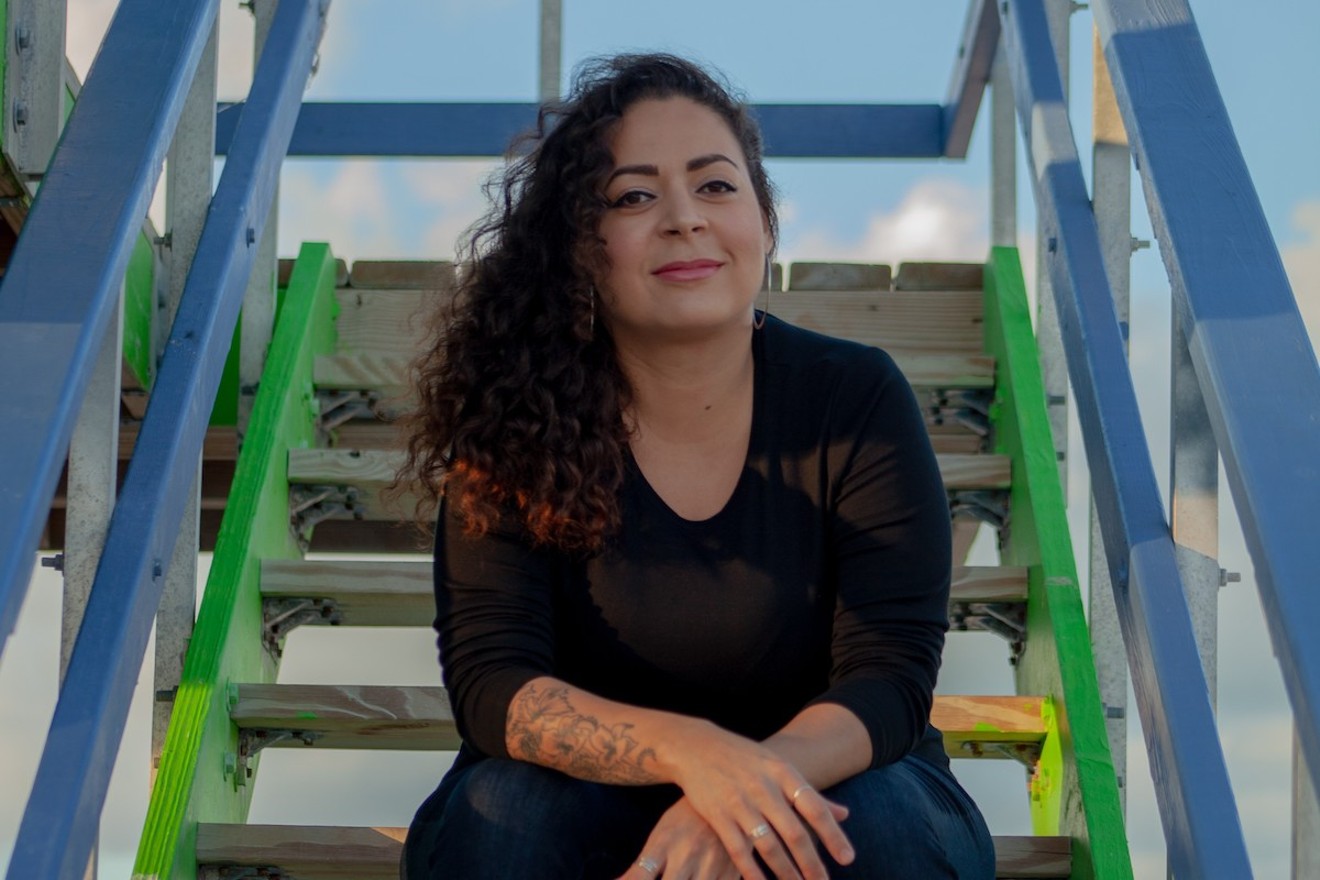Jaquira Díaz began her days in the government housing projects in Puerto Rico. It was, she writes in her new memoir, Ordinary Girls, “a world of men, of violence, a place too often not safe for women or girls. There were shoot-outs in the streets, 14-year-old boys carrying guns as they rode their bikes to the candy store just outside the walls.”
But Puerto Rico is also where her father educated her about the men and women who came before her, seeking justice for their island. She carries those stories with her, too.
Díaz's mother works long hours at a factory. Her father, who deals drugs, often takes her to his own mother's house, where she's nourished with food and love — and books. Papi kept a special bookcase at Abuela's. “That bookcase was his refuge, where he sometimes went when Mami was yelling or flinging plates across the room. He’d sit in Abuela’s kitchen, turning pages, always with his café,” Díaz writes.
From her grandmother Díaz learns about her father's boyhood: the lovable troublemaker nicknamed Cano, whom, young Jaquira is told, she's “just like.”
After a near-tragedy, the family moves to Miami Beach. It is here that Díaz comes to understand that a change in geography is not the cure for what has been ailing her mother. Mami’s mental health fractures as she nears 30, revealing schizophrenia, which she attempts to self-medicate with street drugs and alcohol. Díaz's parents split, her mother’s slide into mental illness becomes more precipitous, and the father to whom she's devoted seems unable — or unwilling — to protect her and her sister from his ex's erratic behavior. Díaz recounts horrifying instances where her mother became “monster,” kidnapping her children from their father’s house in the middle of the night, stealing money from her children to feed her drug habit while her kids went hungry, frightening them with her erratic behavior.
As a girl, Díaz became obsessed with the “Baby Lollipops” murder case that rocked Miami in the early 1990s. On November 2, 1990, two utility-company employees working in La Gorce discovered the bloodied body of an emaciated toddler, subsequently identified as three-year-old Lázaro Figueroa, whose corpse bore evidence of horrific abuse. (Lázaro's mother, Ana María Cardona, and her partner, Olivia González, would ultimately be convicted of murder in the case.) For Diaz, who was 11 at the time of the discovery, the ubiquity of the boy’s image as authorities sought his identity and the details of his murder is further proof that loving mothers can become monsters. Years later, Díaz will correspond with Cardona, who remains behind bars, in search of answers.
Díaz juxtaposes Cardona’s arrest and trial with the events of her adolescence, as her own mother becomes a danger to her children. Along with the terrible details surrounding the murder, Díaz internalizes the gossip that cites the two suspects' lesbian relationship as a contributing factor, and in turn wrestles with her own overwhelming feelings for some of the girls she hangs out with.
Nearly of these “ordinary girls” are inadequately cared for, owing to the exigencies of poverty, racism, and addiction that interfere with their parents’ efforts to raise them. But they find support and love as they form a protective pod around one another. These girls, many of whom Díaz confesses to having fallen in love with, were the “[h]ood girls, who were strong and vulnerable, who taught me about love and friendship and hope.”
Through episodes of sexual assault and depression, and years of self-destructive behavior – fights with (and beatings at the hands of) other girls; cutting school in spite of teachers who saw the promise in her intellect and creativity; juvenile-court appearances – those girls provide the solidarity and support Díaz lacks at home. An early marriage leads to her enlistment in the U.S. Navy, where she discovers previously unrecognized strengths. Díaz's brutal honesty about her behavior, and her refusal to sugarcoat her youth, strengthen a story that will have the reader rooting for her throughout.
Ordinary Girls: A Memoir, by Jaquira Díaz. Algonquin Books of Chapel Hill; October 2019. $26.95. 336 pages.
Jaquira Díaz. 8 p.m. Monday, October 28, at Books & Books, 265 Aragon Ave., Coral Gables; 305-442-4408; booksandbooks.com. Admission is free via eventbrite.com.
[
{
"name": "Air - MediumRectangle - Inline Content - Mobile Display Size",
"component": "19274298",
"insertPoint": "2",
"requiredCountToDisplay": "2"
},{
"name": "Editor Picks",
"component": "17482312",
"insertPoint": "4",
"requiredCountToDisplay": "1"
},{
"name": "Inline Links",
"component": "18711090",
"insertPoint": "8th",
"startingPoint": 8,
"requiredCountToDisplay": "7",
"maxInsertions": 25
},{
"name": "Air - MediumRectangle - Combo - Inline Content",
"component": "17482310",
"insertPoint": "8th",
"startingPoint": 8,
"requiredCountToDisplay": "7",
"maxInsertions": 25
},{
"name": "Inline Links",
"component": "18711090",
"insertPoint": "8th",
"startingPoint": 12,
"requiredCountToDisplay": "11",
"maxInsertions": 25
},{
"name": "Air - Leaderboard Tower - Combo - Inline Content",
"component": "17482313",
"insertPoint": "8th",
"startingPoint": 12,
"requiredCountToDisplay": "11",
"maxInsertions": 25
}
]











